NHS strike: Unison leader says more workers to vote on strike action
- Published
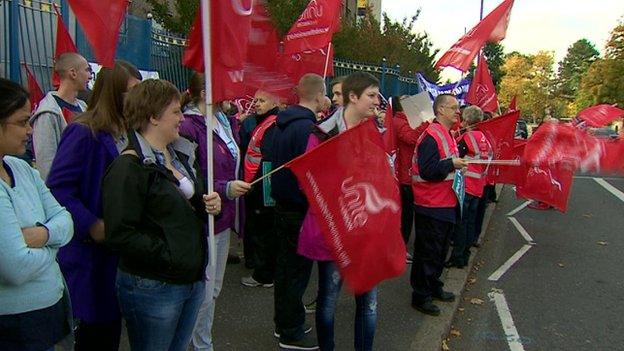
Health workers were striking in a dispute over pay
Strike action by NHS staff in Northern Ireland over pay will be stepped up, a union official has said.
Patricia McKeown, regional secretary of Unison, said thousands more workers are expected to vote on strike action.
"Our people are facing a stark fifth year of pay freeze and that is having a very adverse impact, particularly on the lowest paid of health workers," she told a lunchtime rally at Stormont.
More than 4,000 NHS staff in Northern Ireland went on strike on Monday.
Members of the unions, Unite and GMB, walked out from 11:00 BST until 14:30 BST.
"We have seen an enormous rise in the number of our members having to turn to the benefit system in order to make ends meet, we have seen an extraordinary rise in the number of members who have been using the Unison internal welfare system to help them out of serious financial difficulties," Ms McKeown said.
"At the same time, they have not stopped delivering 365 days a year, delivering health care and social care to people right across Northern Ireland in the face of all sorts of cutbacks; they are under big stress and big pressure.
"We are here with a very clear message to our politicians today; we need a response very quickly otherwise Unison, which is the biggest union in the health service in Northern Ireland, will ballot for strike action.
"We did it in 2011 in protest at cuts in health care and we brought the service to accident and emergency cover only. We don't want to do that but we must move to protect the interests of our people who are in a very serious situation now."
Unions want a 1% pay rise to be implemented for all staff, but the NHS said this would cost too much.
Kevin McAdam of Unite said the workers were saying: "Enough is enough."
"We haven't had a pay rise of any substance over the past four or five years," he said.
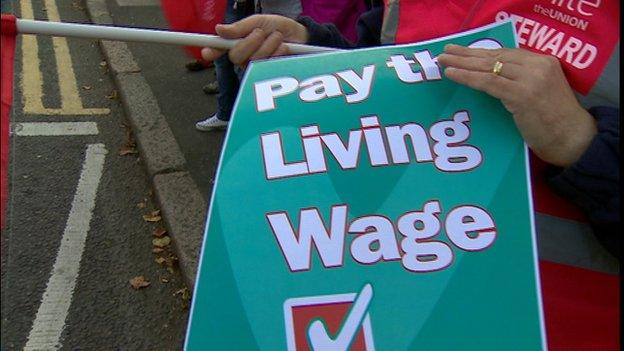
Unite said workers had not received a pay rise "of any substance" in five years
"In fact, our members reckon their wages have dropped by 15% in real terms over the last four years."
Mr McAdam told BBC NI's Good Morning Ulster that the unions had given negotiation "every effort".
"We absolutely understand the service is under strain, but our members are also under strain," he said.
"A strike is not something our members take lightly and the decision was not taken lightly."
Mr McAdam said the agreement reached in Scotland to pay a living wage and give a 1% pay rise could actually end up saving the Government money.
A health department spokesman said: "Health Minister Jim Wells has been informed that as a result of measures taken, all trusts throughout Northern Ireland reported no significant disruption to services for their patients and clients."
In England, six unions took strike action on Monday from 07:00 BST to 11:00 BST.
Those unions have more than 400,000 members in the NHS in England, out of 1.3m staff.
The government has given NHS staff a 1% pay rise, but not for those who get automatic progression-in-the-job rises.
Those increases are given to about half of all staff members and are worth 3% a year on average.
The decision by ministers went against the recommendation of the independent pay review board, which called for an across-the-board rise.
In Scotland, a 1% pay rise was given to everyone, while no decision has been made in Northern Ireland.
- Published13 October 2014
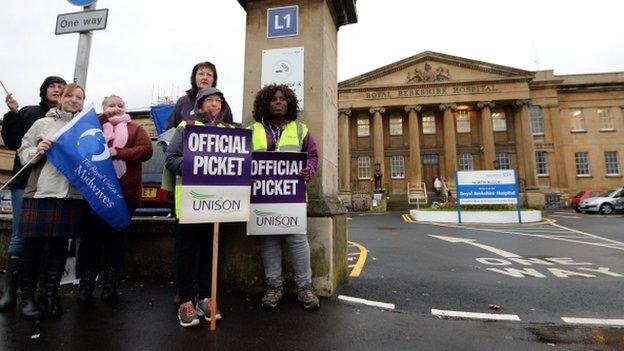
- Published12 October 2014
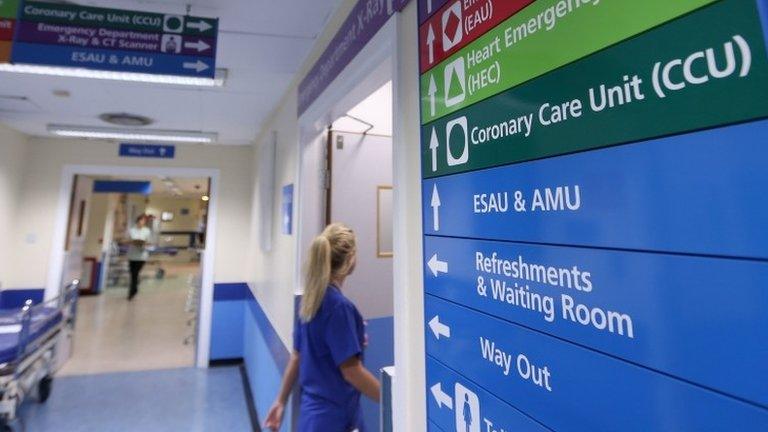
- Published12 October 2014
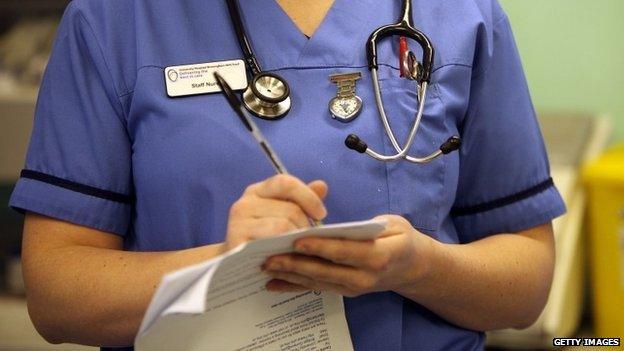
- Published24 September 2014

- Published13 March 2014